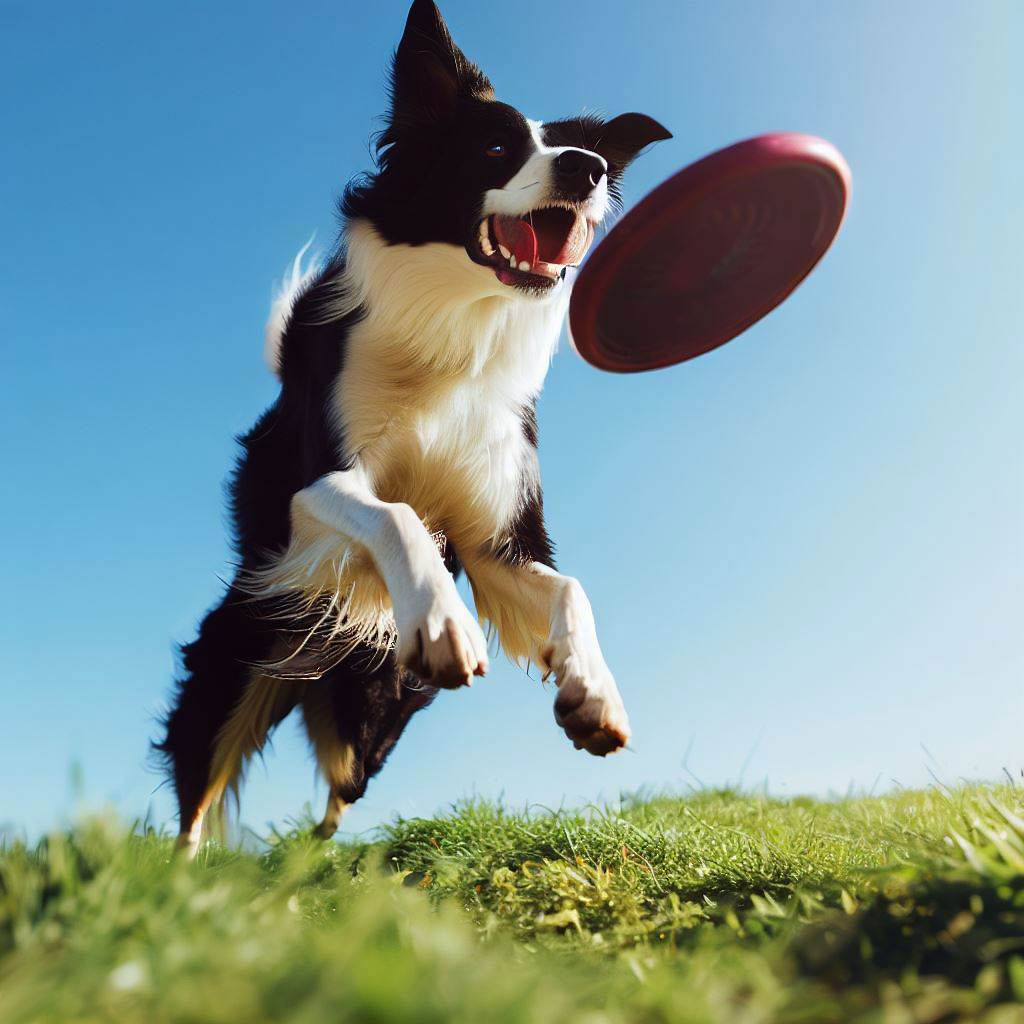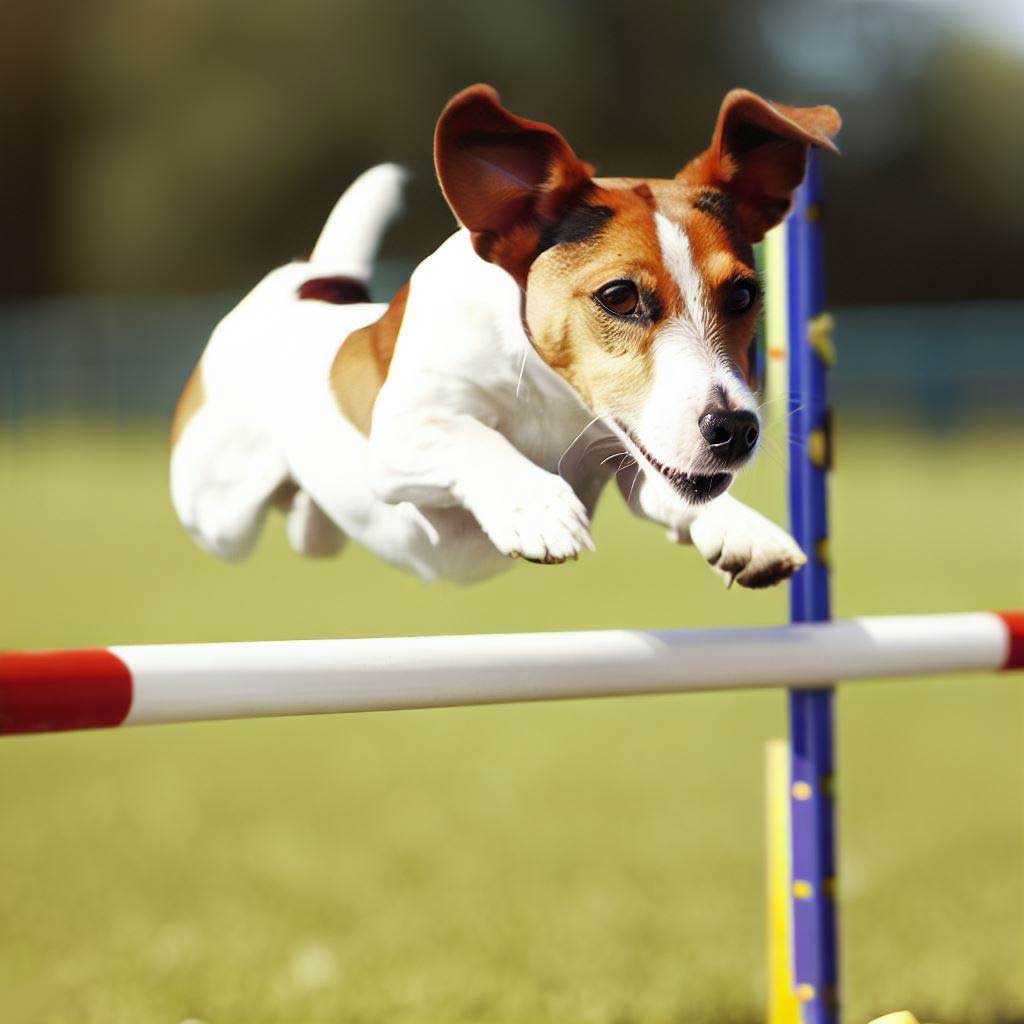Is it Too Late to Train My Dog: Puppy and Dog Training Guide. Learn why age isn’t a barrier and how to train older dogs effectively.
Table of Contents
Is it Too Late to Train My Dog?
Simple answer is No. The question that plagues many dog owners is, “is it too late to train my dog?” often stems from misconceptions about a dog’s ability to learn based on age. Whether you have a new puppy or an older dog, this guide aims to shed light on this concern.
Brief explanation of dog training
Dog training is a multifaceted practice that encompasses teaching obedience, instilling good habits, and building a strong bond between humans and their canine companions. It’s a shared journey of understanding, communication, patience, and love.
Importance of proper training for all age groups
Training is a crucial part of a dog’s life, regardless of age. It fosters mutual respect, strengthens your bond, helps in socialization, and can even save your dog’s life in critical situations. Proper training allows for a harmonious relationship with your dog, benefiting everyone involved and you can read more in our 5 Golden Rules of Dog Training post.
Common Misconceptions About Age and Dog Training
Myth: Only Puppies Can Be Trained
Many believe that only puppies are capable of being trained, giving rise to the apprehension, “is it too late to train my dog?” if the dog has grown beyond the puppy stage.
Reality: Age Isn’t a Barrier for Learning
Age is never a barrier to learning. Each stage of a dog’s life offers unique opportunities and challenges for training. From puppies to senior dogs, every dog can learn with the right approach and effort.
Factors Influencing Dog Training at Different Ages
Puppies
Puppies are like blank slates, eager to learn and explore. However, training a puppy requires patience, positive reinforcement, and understanding of their developmental stages. Answering the question, “is it too late to train my dog?” with puppies, it’s never too early to start.
Adolescent Dogs
Adolescence in dogs can be a challenging time. Behavior changes are common, and consistent training is essential. Tailoring training to their growing bodies and minds will yield the best results. Training an adolescent dog is not only feasible but necessary.
Adult Dogs
Adult dogs might come with established habits, some of which may need correction. You might think, “is it too late to train my dog?” but adult dogs can learn just as effectively, albeit with different strategies. Understanding their history, behavior, and unique personality is key to successful training.
Senior Dogs
When it comes to senior dogs, you may wonder more fervently, “is it too late to train my dog?” The answer remains no. Senior dogs might require more gentle methods and patience. Training can be an enriching experience for senior dogs, enhancing their golden years with mental stimulation and continued bonding.
Extending the Discussion
Puppy Training Essentials
Starting with basic commands and socialization, puppy training sets the foundation. Using positive reinforcement and avoiding punishment is critical.
Adolescent Dog Challenges and Solutions
This transitional phase requires understanding and reinforcing previous training. Understanding their newfound independence will help guide them through this phase.
Adult Dogs: Unlearning and Learning Anew
Adult dogs may need to unlearn certain behaviors. Consistent training, positive reinforcement, and understanding their background will lead to success.
Senior Dog Considerations
Training older dogs requires recognizing their physical limitations. Gentle, enjoyable activities, patience, and love will make this process rewarding.
Professional Assistance and Choosing the Right Trainer
Sometimes professional help is needed. Selecting a certified, experienced trainer who understands your dog’s unique needs can make a significant difference in the training journey.
Tools and Techniques
Utilizing proper tools and techniques customized to your dog’s age and temperament can enhance the training experience.
Health Considerations in Training
Always consider your dog’s health, especially with older dogs. Regular vet check-ups ensure that your dog is fit for training.
Emphasizing the Positive
Regardless of age, focusing on positive reinforcement, treating your dog with respect, and maintaining patience will lead to a satisfying training experience.
No matter the age, breed, or history of your dog, it’s never too late to start training. The key is to understand your dog’s needs, choose the appropriate methods, and approach the process with patience and love. If the question, “is it too late to train my dog?” still lingers, remember that the doors to learning remain open at every stage of your dog’s life.

Benefits of Training Your Dog, Regardless of Age
Better Communication
Training your dog, whether a puppy or an adult, leads to improved communication. The importance of dog training helps you understand your pet’s needs and desires. If you ever wondered, “is it too late to train my dog?” consider how training at any age can foster a more profound connection through mutual understanding. To learn more have a read of our best 7 Commands to Train a Dog guide.
Enhanced Relationship
Training doesn’t merely correct bad behaviors; it enhances the relationship between you and your dog. By spending time together, working on tasks, and achieving goals, you create a bond that strengthens trust and affection. This applies to dogs of all ages, proving that it’s never too late to train your dog and grow your relationship.
Control over Behavioral Problems
Perhaps one of the most immediate benefits of training is gaining control over behavioral issues. By understanding why a dog behaves a certain way and working with them to address those behaviors, you instill better habits. This control isn’t restricted to young dogs; even older dogs can learn new behaviors, further emphasizing that it’s never too late to train your dog.
Mental Stimulation
Just like humans, dogs need mental stimulation. Training provides this essential exercise for the brain, keeping dogs engaged and content. By continually challenging and engaging them, you contribute to their overall well-being, regardless of their age.
Training Methods for Dogs of Different Ages
Basic Obedience Training
Every dog should understand basic commands like sit, teaching a dog to stay, and how to heel on command. These aren’t just for puppies. If you have an older dog and are questioning, “is it too late to train my dog?” don’t worry. These basic commands can be taught at any age with persistence and the correct approach, even for beginners.
Specialized Training
Specialized training includes agility, therapy work, or specific tasks for service dogs. This can be introduced at various stages of a dog’s life. Thus, it’s not only about age but also about recognizing and nurturing your dog’s unique talents and abilities.
Using Positive Reinforcements
Positive reinforcement is key to effective training, regardless of your dog’s age. Rewarding good behavior encourages repeat performances. Older dogs, just like puppies, respond well to positive reinforcement, making this approach universally effective. So, if the question “is it too late to train my dog?” concerns you, remember that positive reinforcement transcends age.
Avoiding Common Mistakes
Training your dog, be it a puppy or a senior, involves avoiding common mistakes such as inconsistency, punishment, or expecting too much too soon. Understanding your dog’s capacity, reinforcing behaviors positively, and maintaining a consistent approach will lead to success. If you find yourself pondering, “is it too late to train my dog?” recognizing and avoiding these mistakes is your first step to success.
Extended Insights
The Science Behind Dog Training
Understanding the science of how dogs learn at different ages can add depth to your training approach. Utilizing this knowledge, you can tailor your training methods to your dog’s particular learning stage, ensuring that it’s never too late to train your dog.
Health Considerations in Training Different Age Groups
Your dog’s health plays a vital role in training. From puppies to seniors, understanding their physical abilities and limitations is crucial. Regular veterinary check-ups can guide your training approach, making the process enjoyable and safe for your dog at any age.
Socialization Across Ages
Socialization is a vital part of training that can be introduced and reinforced at any age. Helping your dog interact positively with other dogs, people, and environments enhances their overall well-being. It’s another reminder that it’s not too late to train your dog, no matter their age.
The Role of Professional Dog Trainers
Sometimes, professional assistance might be required, especially with specific behavioral problems or specialized training. Choosing a skilled, empathetic professional can significantly benefit dogs of all ages.

Finding the Right Trainer
Professional Qualifications
When pondering the question, “is it too late to train my dog?” it often leads to seeking professional help. Selecting a qualified trainer is paramount. Look for certifications from recognized institutions, ongoing education, and an understanding of modern, humane training methods. Their qualifications will be a testament to their ability to train dogs of all ages.
Training dogs, irrespective of their age, is akin to crafting a masterpiece. Each brushstroke, made of patience, repetition, and love, adds to the canvas. Every dog, from an energetic puppy to a serene senior, brings its own color palette, awaiting your skilled touch.
In moments when the masterpiece seems far from completion and you’re unsure of the next stroke, there’s solace in online guidance. Among these, online dog training courses are a wellspring of knowledge. To pinpoint the most effective ones, the article “Best Online Dog Training Courses: Any Dog Will Love” emerges as an essential read. Here, 15 top courses are dissected, zeroing in on the top three, ensuring your masterpiece finds its perfect finish.
Personalized Approach
Every dog is unique, so a one-size-fits-all approach won’t work. Find a trainer who offers a personalized plan that fits your dog’s age, temperament, and specific needs. If you’re concerned that it might be too late to train your dog, a personalized strategy will cater to your dog’s learning pace and individual quirks, proving that age is no barrier.
Real-life Success Stories
Nothing speaks more about a trainer’s capability than their real-life success stories. Look for testimonials from other dog owners who have had similar concerns, like “is it too late to train my dog?” Their experiences, particularly with older dogs, can give you confidence in the trainer’s abilities.
Case Studies: Success Stories of Training Older Dogs
- Case Study: Max, a 7-year old Retriever – Max’s owners were worried, thinking, “is it too late to train my dog?” With the right training approach, Max learned obedience commands and overcame his fear of cars.
- Case Study: Bella, a 9-year old Terrier Mix – Bella’s owner needed to address her aggression. Despite her age, with consistent positive reinforcement, Bella became a loving and gentle companion.
- Case Study: Charlie, a 6-year old Poodle – Charlie was an anxious dog who barked excessively. By understanding his triggers and working with a trainer specializing in behavioral issues, Charlie’s life turned around completely.
- Case Study: Daisy, a 10-year old Beagle – Daisy’s family wondered if it was too late to train her, especially with her constant digging. The right trainer, using specialized techniques, helped Daisy replace her digging with more acceptable behaviors.
These case studies highlight that with proper training techniques and patience, older dogs can learn new behaviors and enhance their lives, affirming the belief that it’s never too late to train a dog.
Conclusion: Is it Too Late to Train My Dog?
It’s never too late
In answering the question, this guide emphasizes that it’s never too late. From puppies to senior dogs, all can learn, grow, and enjoy the benefits of training. Age should never be a deterrent; it’s an opportunity to enhance the bond and enrich your dog’s life.
Encouraging action
If you’ve found yourself worrying, “is it too late to train my dog?” take action. Whether it’s taking on the challenge yourself or finding a professional, move forward with the assurance that positive change is possible at any age.
Key takeaways
Remember, the key to successful dog training, regardless of age, includes understanding your dog’s unique needs, applying positive reinforcement, avoiding common mistakes, and if needed, finding a qualified trainer. These principles underscore that no matter the age, breed, or behavior of your dog, it’s never too late to embark on the rewarding journey of training.
By adhering to these principles and drawing inspiration from real-life success stories, you can put aside any fears or misconceptions that it’s too late to train your dog. With commitment, patience, and understanding, you can achieve a harmonious relationship with your canine companion, no matter their age.

FAQ: Is it Too Late to Train My Dog?
Is it possible to train an old dog to learn new tricks?
Yes, there’s no such thing as a dog too old to train and contrary to the popular saying, old dogs can learn new tricks. Age isn’t a barrier; what matters is the method and consistency in training. If you’re thinking, “is it too late to train my dog?” rest assured, with the right approach, it’s never too late.
What are the differences between training a puppy and an older dog?
Training a puppy usually involves molding fresh behaviors, whereas older dogs might have ingrained habits. Puppies are often more receptive but may have shorter attention spans. Older dogs may learn more slowly but can be more focused and attentive.
Are there any risks in training an older dog?
Some might fear that it’s too late to train older dogs, but there’s no significant risk involved if proper care is taken. Considering the dog’s health and stamina is essential, and using methods that are gentle and positive will reduce any potential risks.
What kind of methods are effective for training older dogs?
Effective methods include positive reinforcement, clicker training, and gradual shaping of behavior. The idea that it’s too late to train older dogs is debunked by using techniques tailored to the individual dog’s needs, temperament, and physical condition.
Can I train my older dog at home without professional help?
Absolutely, with commitment and the right resources, training an older dog at home is possible. If you think it’s too late to train your dog without professional help, find books, online courses, and videos from certified trainers as guides.
Are there any specific tools or toys recommended for training an older dog?
Clickers, treat-dispensing toys, and soft, comfortable harnesses are useful tools. These can aid in proving that it’s not too late to train an older dog by encouraging engagement, mental stimulation, and positive behavior.
How long does it typically take to train an older dog?
The time can vary based on the dog’s previous training, temperament, and the behaviors being taught. Patience and consistency are key, so remember, it’s not about how quickly it’s done, but how well.
What if my older dog has health issues, can they still be trained?
Health issues don’t mean it’s too late to train your dog. Consult with a veterinarian to understand any limitations, and adapt your training methods accordingly. Emphasizing low-impact activities and mental stimulation can still result in a rewarding training experience.
Where can I find resources to support me in training my older dog?
Resources like online forums, instructional videos by accredited trainers, and community dog training classes are available. If you’re concerned about whether it’s too late to train your dog, these resources can provide assurance and guidance.
Is 2-years old too late to train a dog?
Certainly not. A 2-year-old dog is often still very adaptable and trainable. Whether teaching basic obedience or new tricks, it’s never too late to train a dog of this age.
At what age is a dog too old to be trained?
There’s no specific age limit. It might be more challenging as a dog reaches senior years, but with adjustments to the training methods and expectations, training remains possible and beneficial.
Can you train a 1-year old dog?
Yes, a 1-year-old dog is in the prime of learning. It’s far from too late to train a dog at this age, and it can be an excellent time to introduce or reinforce training concepts.
What happens if you never train your dog?
Untrained dogs might develop behavioral issues, and the bond between owner and dog might suffer. It’s never too late to train, so taking the time to do so can enhance your relationship with your pet.
Is it too late to house train a 3-year old dog?
No, it’s not too late to house train a 3-year-old dog. With persistence, consistency, and an understanding of the dog’s signals, house training can be successfully achieved.
How do you train a 3-year old dog to come when called?
Training a 3-year-old dog to come when called involves positive reinforcement, practicing in various environments, and gradually increasing distractions. It’s not too late to instill this valuable command.
Are dogs happier if they are trained?
Yes, trained dogs often exhibit signs of happiness as they have clear guidelines, understand expectations, and enjoy a deeper bond with their owners.
Is a trained dog a happier dog?
Generally, yes. A trained dog can lead a more fulfilled life as it often involves mental stimulation, clear communication, and a stronger relationship with the human family.
What is the hardest thing to train a dog to do?
Advanced tasks like scent discrimination or complex agility work can be challenging. However, with patience, understanding, and the belief that it’s never too late to train, success can be achieved.
How do I find an accredited trainer for my older dog?
Start by going online and doing as much research as you can to find the right accredited trainer near you, or if you’re in the US you can begin consulting the Association of Professional Dog Trainers. Another great source, is the International Association of Canine Professionals. They have many directories of certified trainers. Research reviews and ask for references to ensure the trainer’s expertise with older dogs.
How long is too late to train a dog?
There’s no specific age limit to train a dog. While younger dogs might pick up commands faster, older dogs can still learn. It’s more about patience, the right training techniques, and understanding the individual dog’s capabilities.
Is a 7-year-old dog too old to train?
No, a 7-year-old dog isn’t too old. We’ve trained numerous senior dogs successfully and with the right positive reinforcement techniques, you can teach an older dog new behaviors and commands. Remember, it’s never too late to teach an older dog new tricks!
Can I still train my 5-year-old dog?
Absolutely! A 5-year-old dog is fully capable of learning. It’s about consistency, patience, and employing effective training methods suitable for the dog’s age.
Can you train a 5-year-old dog?
Yes, you can. With dedication and positive reinforcement, many 5-year-old dogs can learn commands just as effectively as younger ones. Each dog’s learning curve varies, but age shouldn’t deter you.
How to train a 3-year-old dog to come when called?
Start in a distraction-free environment. Use treats or toys as rewards. Call the dog’s name, followed by “come.” Reward immediately when they obey. Gradually introduce more distractions as they master the command.
Can you train a 4-year-old dog to stop barking?
Certainly. Identify the cause of the barking. Offer distractions like toys when they start. Use commands like “quiet” or “enough,” and reward them when they stop and remember, consistency is key for success with this.
How to train an older dog not to be aggressive?
Establish yourself as the leader through consistent commands. Socialize the dog gradually. Reward calm behavior. If aggression persists, seek a professional dog behaviorist’s expertise.
What’s a basic good puppy training schedule by age?
Start your puppy at 8-12 weeks, focus on potty training and basic commands. By 4-6 months, work on leash training and basic obedience. From 6 months to a year, reinforce obedience and introduce advanced commands.
What is the best age to train a dog?
While puppies as young as 7-8 weeks can start basic training, any age is suitable. What’s crucial is using age-appropriate methods and understanding the dog’s physical and mental capabilities.
How to train an older dog basic commands?
Use positive reinforcement. Start with easy commands like “sit” in a quiet environment. Reward immediately for correct behavior. Gradually move to more complex commands, ensuring patience and consistency.
How old is too old for puppy potty training?
There’s no age limit for puppy potty training. While younger puppies might learn faster, older dogs can still be potty trained. Understand their routine and use praise and rewards to reinforce the right behavior.
Can I teach my dog to use a crate at 3 years old?
Yes. Start with short durations in the crate, rewarding them for calm behavior. Gradually increase the time. Ensure the crate is a positive, comfortable space for them.
How old can a dog be to train for dog sports?
While younger dogs often start early in dog sports, older dogs can participate too, provided they’re physically fit. Always get a vet’s clearance and ensure the sport is appropriate for the dog’s age and health.
What dog breeds are hard to train when older?
Independent dog breeds like Afghan Hounds or Basenjis might be more challenging due to their stubborn nature. However, every dog is an individual. With patience and the right techniques, training is possible.
Can you introduce dog beds to outside dogs?
Absolutely. Start by placing the dog beds in their usual resting spot. Use treats to encourage them onto the bed. Over time, they’ll associate the bed with comfort.
Can my puppy be trained just on weekends for the potty?
While it’s ideal for consistency daily, weekend training can work. Ensure you’re very consistent on weekends, rewarding immediately for correct behavior. It might just take a bit longer compared to if yo do this daily.
How much time per session should I train an older dog?
For older dogs, keep sessions short but frequent, around 10-15 minutes. They may have shorter attention spans or physical limitations. Always end on a positive note to keep them motivated.









